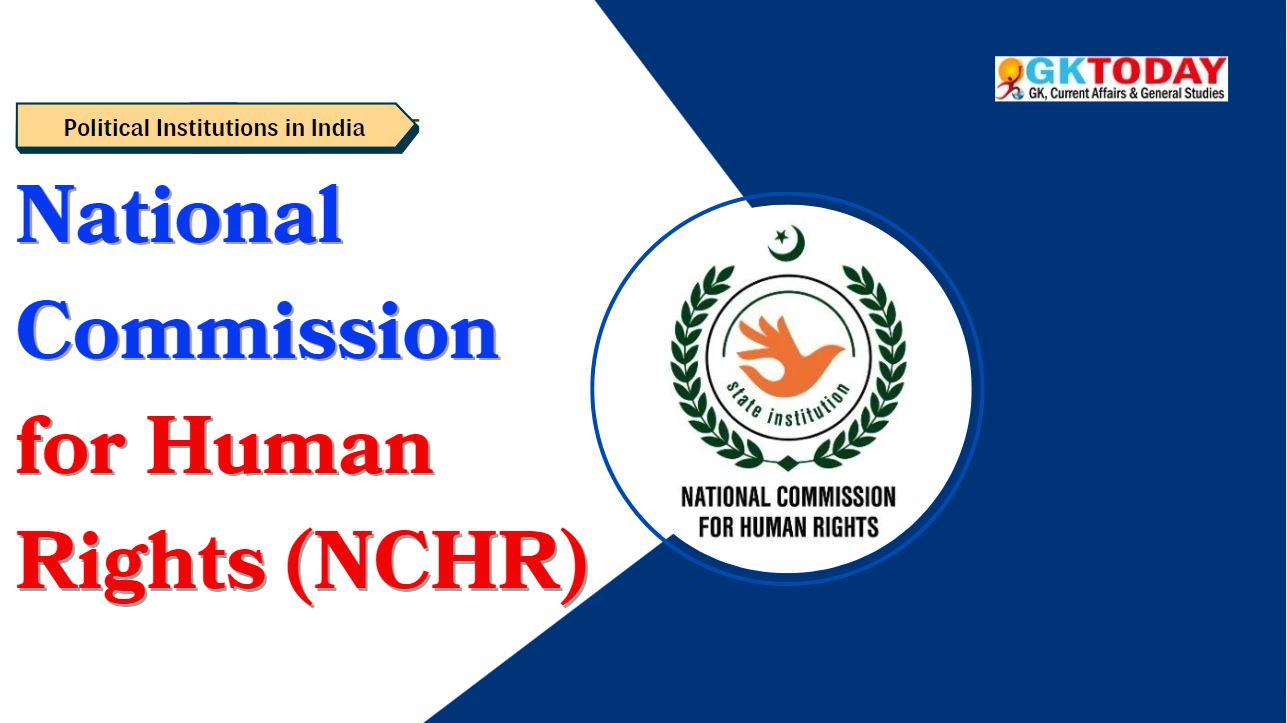National Commission for Human Rights (NCHR) [UGC-NTA NET Political Science Notes]
The National Commission for Human Rights (NCHR) is a statutory body in India, dedicated to the protection and promotion of human rights. It plays a critical role in addressing violations and raising awareness about human rights issues across the nation. Established under the Protection of Human Rights Act, 1993, the NCHR serves as a guardian of individual rights and freedoms.
Establishment
The NCHR was established in 1993. The enabling legislation, the Protection of Human Rights Act, provides the legal framework for the Commission’s operations. The Commission was officially notified on 12th October 1993.
Key Milestones
- 1993 – NCHR established.
- 12th October 1993 – Official notification of the Commission.
Composition
The Commission comprises a chairperson and other members. The chairperson is either a retired Chief Justice of India or a judge of the Supreme Court. There are four additional members, with at least one being a woman. Two members must have knowledge or practical experience in human rights matters, while the other two should be social scientists or experts in human rights.
Membership Criteria
- Chairperson – Retired Chief Justice or Supreme Court judge.
- Members – 4 total, including at least one woman.
- Expertise in human rights is essential for at least half of the members.
Tenure and Conditions of Service
Members of the NCHR serve for a tenure of five years or until they reach the age of 70, whichever comes first. The Central Government determines the conditions of service, adhering to the guidelines set forth in the Protection of Human Rights Act.
Tenure Details
- Duration – 5 years or until age 70.
- Service conditions set by the Central Government.
Functions and Powers
The NCHR possesses powers to investigate human rights violations. It can inquire into complaints of violations and negligence by public servants. The Commission recommends measures for effective human rights implementation and can suggest amendments to laws for better protection.
Key Functions
- Investigative Powers – Inquiries into human rights violations.
- Recommendations – Suggests measures and legal amendments.
- Promotion – Conducts awareness campaigns and research.
- Reporting – Submits annual reports to the government.
Jurisdiction
The NCHR has a broad jurisdiction covering all human rights violations in India. This includes violations committed by public authorities and private individuals. It addresses civil, political, economic, social, and cultural rights.
Scope of Jurisdiction
- Civil Rights – Protection against discrimination.
- Political Rights – Right to participate in governance.
- Economic Rights – Right to livelihood.
- Social Rights – Access to education and health.
- Cultural Rights – Preservation of cultural identity.
Complaints Mechanism
Individuals can file complaints regarding human rights violations. The Commission has a structured process for investigating these complaints. It can summon witnesses, require document production, and conduct hearings.
Complaint Process
- Filing – Individuals can lodge complaints easily.
- Investigation – Commission conducts thorough inquiries.
Relationship with Other Bodies
Each state in India can establish its own human rights commission. The NCHR coordinates with these state commissions and other statutory bodies to ensure comprehensive human rights protection across the country.
Coordination Efforts
- State Commissions – Collaborates with state human rights commissions.
- Statutory Bodies – Works with other relevant organisations.
Significant Achievements
The NCHR has conducted numerous awareness campaigns to raise public consciousness about human rights issues. It has also influenced policy changes and legislative reforms aimed at enhancing human rights protection.
Notable Achievements
- Awareness Campaigns – Educating the public on rights.
- Policy Recommendations – Influencing government reforms.
Challenges
Despite its efforts, the NCHR faces several challenges. Implementation of its recommendations often encounters obstacles. Resource constraints, including limited financial and human resources, affect its functioning. Additionally, a lack of public awareness about the Commission’s role hampers its effectiveness.
Key Challenges
- Implementation – Difficulties in enforcing recommendations.
- Resource Constraints – Limited funding and staffing.
- Public Awareness – Lack of knowledge about rights.
Recent Developments
The Protection of Human Rights (Amendment) Act, 2019, expanded the scope and powers of the NCHR. The Commission has also adopted digital initiatives, allowing for easier filing of complaints and conducting inquiries.
Recent Changes
- Amendments – Enhanced powers under the 2019 Act.
- Digital Initiatives – Online complaint filing and inquiries.
Notable Cases
The NCHR has conducted inquiries into high-profile cases, including custodial deaths and police brutality. These inquiries demonstrate its commitment to addressing serious human rights violations.
High-Profile Inquiries
- Custodial Deaths – Investigating police misconduct.
- Police Brutality – Addressing excessive force incidents.
- Communal Riots – Examining violations during unrest.
Public Engagement
The NCHR regularly organises workshops and seminars to engage with civil society. These initiatives promote human rights education and encourage public participation in human rights advocacy.
Engagement Activities
- Workshops – Training sessions on human rights.
- Seminars – Discussions with civil society organisations.
International Relations
The Commission collaborates with international human rights organisations. It participates in global human rights forums, promoting adherence to international human rights standards.
Global Cooperation
- International Collaboration – Working with global bodies.
- Participation – Engaging in international forums.


